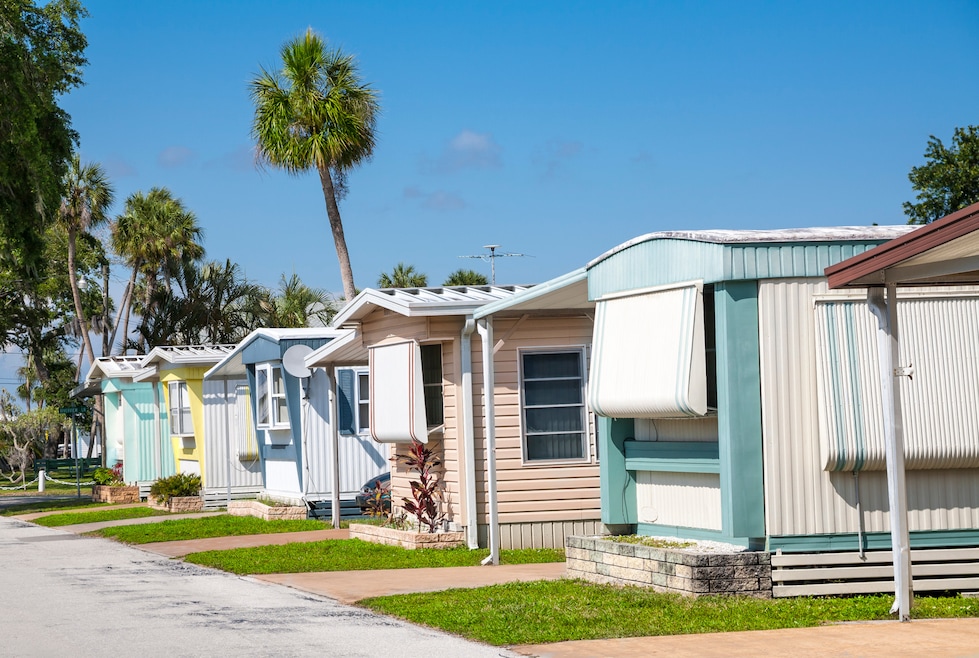While most people who borrow money to pay for a manufactured home use a traditional mortgage or personal property loan, a significant number rely on so-called contract financing, in which prospects for actual ownership are left in doubt.
Twenty percent of loans made to people living in manufactured homes, what used to be called mobile homes, are in the form of contracts that include few of the legal protections enjoyed by mortgage holders, according to a new report by the nonprofit Pew Charitable Trusts. These borrowers typically don’t own their homes until they make the last payment.
“These borrowers frequently invest significant time and money in their properties even though they could be swiftly evicted without an opportunity to recoup those investments - no different than a renter,” according to the report. “And in the event of a natural disaster, borrowers using contract financing are generally not eligible for federal or state homeowner assistance programs.”
The Pew study was based on a survey of 1,252 adults who live in a manufactured home. The study said the 20% of borrowers using contract financing represents about 560,000 people. Only 5 percent of people who buy homes built on-site, as opposed to factory-made manufactured homes, use this type of loan.
From the Homes.com blog: What You Need to Know About Buying a Manufactured Home
The challenges for people looking to borrow funds for a manufactured home start with state laws, most of which require these houses to be titled as personal property rather than real estate, Pew said. Few lenders will issue a mortgage when a home is titled this way. That’s why these homes are more likely to carry personal property loans.
But those loans are also tough to get. Sixty-four percent of manufactured home dwellers who applied for a personal property loan were denied in 2021, the report said. Because the federal government doesn’t insure or guarantee these loans, unlike mortgages, only a small number of companies offer them.
While Pew did not find significant differences in delinquency and default rates depending on what type of loan borrowers obtained, the Federal Housing Administration has found people are more likely to default if they own their home but not the land underneath it. That’s a common scenario in manufactured home communities where a single corporate entity usually owns the land.
While the survey sheds some light, Pew noted that it is otherwise difficult to find information on the number of people who rely on contract financing for manufactured homes.
From the Homes.com blog: Finance your home
“Contract financing is far less regulated, with almost no data collected or made available by federal or state agencies or lenders on the prevalence, terms, or interest rates of contracts or of the homes purchased,” according to the report.
Pew's report calls for state governments to amend their laws to make more manufactured home buyers eligible for mortgages and to ensure that contract financing includes reasonable consumer protections. The federal government should make it easier for lenders to offer personal property loans, the report said.


